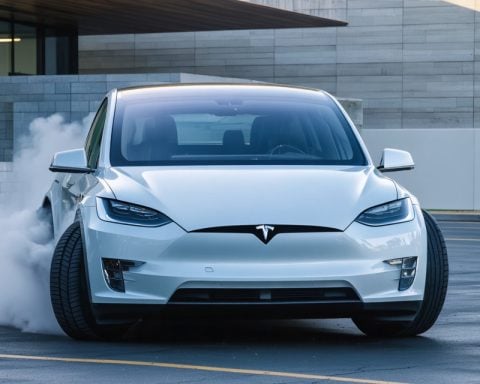Electric Mobility Highlights
The final week of 2024 has proven to be anything but uneventful in the electric mobility sector. Recent reports indicate a troubling trend for electric bicycles as sales figures continue to decline. The market appears to be undergoing a significant shift, raising concerns among manufacturers and retailers alike.
In a surprising turn of events, Hertz, the renowned car rental company, has hit a roadblock when it comes to managing its fleet of electric vehicles. Despite significant investments in electric cars, the company is now exploring various options to offload its inventory, signifying a tougher market for EV rentals.
In a move that could reshape the industry, Honda and Nissan are rumored to be in talks for a potential merger. Both companies are looking to combine their strengths and resources to better navigate the increasingly competitive landscape of electric vehicles. The industry waits with bated breath as this partnership could have considerable implications for future innovations.
As 2024 draws to a close, shocking developments in electric mobility underscore the evolving nature of the market. Stakeholders are keenly watching how these events unfold, knowing that they could redefine the future of transportation.
Shifting Trends in Electric Mobility: What You Need to Know
As we close the chapter on 2024, the electric mobility sector is seeing significant changes that could shape its future. From declining electric bicycle sales to potential mergers among major automotive players, the latest developments warrant close attention.
Decline of Electric Bicycle Sales
Recent data indicates a continuing decrease in electric bicycle sales. This decline raises questions about consumer demand and market saturation. Key factors influencing this trend may include:
– Economic Considerations: With rising costs of living, many consumers are reconsidering discretionary purchases like e-bikes.
– Competition: Increased competition from other mobility options, such as scooters and public transport, could be displacing e-bike sales.
The electric bicycle market’s contraction may lead to innovations to revitalize interest, such as advancements in battery technology and design.
Challenges for EV Rental Services
Hertz’s struggles with its electric vehicle fleet highlight the complexities of the rental market. Despite its push into electric mobility, the company is contemplating strategies to manage its inventory, which may include reducing its electric vehicle fleet size. This situation points to several industry-wide challenges:
– Market Demand: Fluctuating consumer interest in rental electric vehicles could prompt a reassessment of fleet strategies.
– Operational Costs: The high upfront costs of electric vehicles and charging infrastructure can strain rental companies looking for profitability.
Potential Honda and Nissan Merger
In a significant industry development, Honda and Nissan are reportedly in discussions regarding a merger. This partnership could have monumental effects on the competitive dynamics of the electric vehicle market, including potential advantages like:
– Resource Sharing: Combining research and development capabilities could lead to faster innovation cycles and cost reductions.
– Market Reach: A merger could enhance distribution networks and customer outreach efforts, benefiting both brands.
The implications of such a merger could set a precedent for other manufacturers seeking strategic alignments to compete in this rapidly evolving sector.
Market Insights and Future Predictions
Industry analysts are focusing on several trends that are likely to impact the electric mobility space in the upcoming years:
– Sustainability Initiatives: Environmental concerns are driving both consumers and manufacturers towards sustainability in the design and use of electric vehicles.
– Technological Innovations: From advancements in battery technology to autonomous driving capabilities, continuous innovation remains a key driver of market growth.
– Government Policies: Changing regulatory landscapes regarding emissions and consumer incentives will play a crucial role in shaping demand.
Pros and Cons of Current Electric Mobility Trends
Pros:
– Increased investment in innovative technologies.
– Strong consumer interest in sustainable transport options.
– Potential collaboration among major players could lead to significant advancements.
Cons:
– Economic factors may impair market growth, particularly for electric bicycles.
– Rental companies face profitability challenges in EV management.
– Mergers may lead to reduced competition and higher prices for consumers.
Conclusion
The electric mobility sector is facing a pivotal moment as it grapples with shifting market conditions and the evolving needs of consumers. Stakeholders need to adapt quickly to these dynamics to stay competitive. The outcome of discussions between major players like Honda and Nissan, along with market responses to current challenges, will play a crucial role in shaping the future of electric transport.
For ongoing updates and insights into electric mobility trends, consider visiting Electric Mobility News.


















